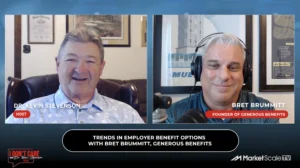HUD Regulations Announcement Elicits Passionate Reactions in the RV World
After submitting a public request for feedback on its Regulatory Review of Manufactured Housing Rules in late January of this year, the Department of Housing and Urban Development (HUD) is perhaps getting more than they bargained for in the way of response. Just as the recreational vehicle (RV) industry hit a milestone, a 39-year high in sales of recreational vehicles, the agency proposed some redefinition in regulations that stirred up controversy among RV and Tiny House on Wheels (THOW) enthusiasts.[1] RVs are currently exempt from regulations mandated for manufactured homes, and the proposal would mean that RVs of greater than 400 feet (and other guidelines) would have to meet those standards from which they were previously exempt. In essence, it redefines what an RV is and is not, and it attempts to draw a distinction between a self-propelled vehicle and a manufactured home.
But not everyone is unhappy about the changes, not even close. Most in the industry appear to be embracing this proposed shift in standards as the long-overdue clarification so sorely needed in the RV world. Where did all this confusion originate? The explanation can be found in the evolution of all things both mobile and home-like. While manufactured homes and RVs are both descendants of the mobile homes of the 60s and 70s, by the 80s the two started to diverge as they evolved. In 1982, clear regulations were issued by HUD, which stated that RVs were exempt from the standards of manufactured homes and clearly defined RVs as having the following qualities:
- Built on single chassis
- 400 square feet or less when measured at the largest horizontal projections
- Self-propelled or permanently towable by a light duty truck
- Designed primarily not for use as a permanent dwelling but as temporary living quarters for recreational, camping, travel, or seasonal use[2]
These terms seem straightforward enough, but just like in most industries, innovation changed everything. RVs became more sophisticated, and people became more interested in their use as a more permanent way to live. The problem is—living in an RV makes it, by definition, not an RV anymore, and thus negates the exemption to which fans have become accustomed. Understandably so, this proposed redefinition of standards feels like a slight and a threat to some who have made RVing a way of life. Others even view the new rules as effectually leaving many people homeless.
According to professionals working in the RV industry, this illumination of standards does not really change anything for full-time RV folks, primarily because these issues are handled at the local level and allow some room for interpretation. At the same time, the rules offer dealers the clarity they need to work within guidelines and stay ethically in tune with regulatory bodies. In addition, those who run RV campgrounds now have the tools to determine appropriate rules with regard to entry and setting up camp.
The bottom line appears to remain a question of design intent. Manufactured homes were designed to be permanent residences. RVs were designed to be recreational vehicles and by extension temporary dwellings. How much impact this proposal will have on its application remains to be seen, but for RV lovers, it’s a good idea to stay in-the-know.
At Genesis Products, we support those who work in the RV industry as well as RV enthusiasts by providing panels, moldings, interior components, and doors, all built to suit individual RV designs. We forged a partnership with RV manufacturers early in our company history and have developed a diversity of knowledge on the unique needs of the industry.
Learn more about Genesis Products and its commitment to recreational vehicle manufacturers here.
Read more at genesisproductsinc.com
[1] https://www.cnsnews.com/news/article/barbara-hollingsworth/huds-proposed-rv-rule-causes-uproar-sales-hit-39-year-high
[2] http://www.rvia.org/?ESID=preleases&PRID=1739&SR=11









